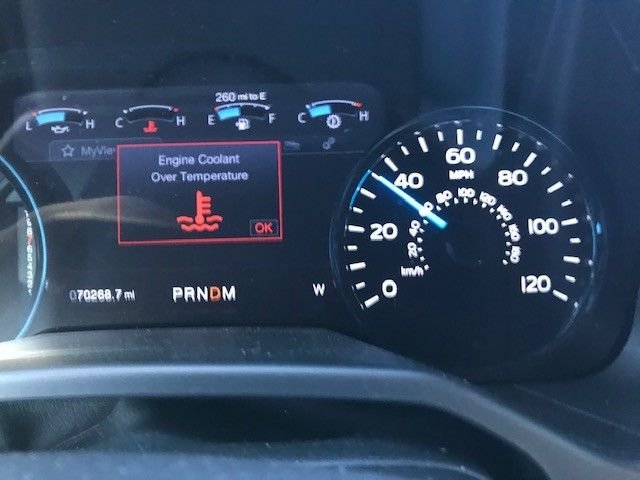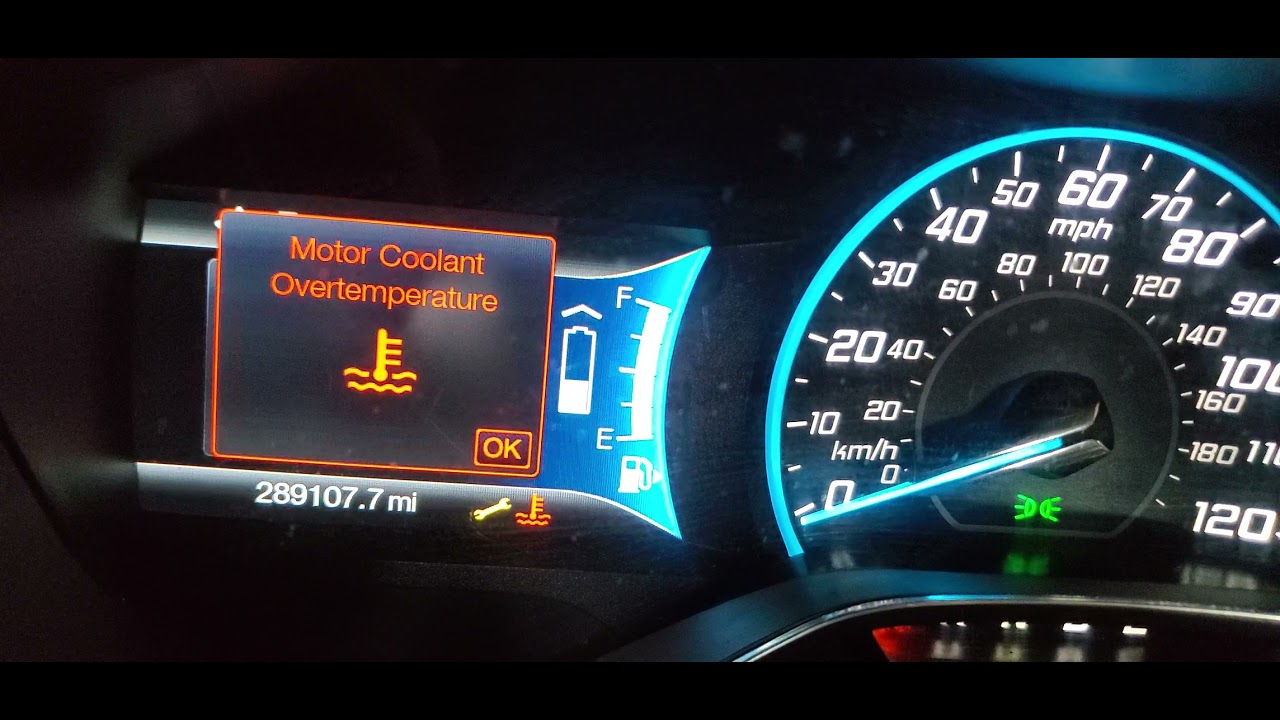Engine coolant over temperature means that the temperature of the coolant in the engine has exceeded the safe operating range, potentially leading to engine damage or failure. When the engine coolant becomes too hot, it is unable to regulate the engine’s temperature effectively, resulting in overheating.
This can be caused by a variety of factors, such as a malfunctioning cooling system, low coolant levels, or a faulty thermostat. It is important to address an engine coolant overtemperature issue promptly to prevent further damage and ensure the proper functioning of the engine.
Regular maintenance and monitoring of the cooling system can help prevent this problem from occurring.
Understanding The Risks Associated With Engine Coolant Overheating
Understanding the Risks Associated with Engine Coolant Overheating
It is essential to maintain optimal engine temperature in order to avoid potential damage to the engine components. Engine coolant over temperature refers to the condition where the coolant in the engine exceeds the safe operating temperature range. Investigating the causes of engine coolant overheating is crucial to identifying and resolving any underlying issues. Overheating can occur due to various factors such as coolant leaks, a malfunctioning radiator, or a faulty thermostat.
Potential damage to engine components can be severe and may include engine overheating, cylinder head gasket failure, or even engine seizure. Regular maintenance and timely replacement of engine coolant are vital to ensure the coolant’s effectiveness in preventing overheating. The lifespan of engine coolant can vary depending on the type and quality. Over time, coolant may lose its protective properties, leading to increased risks of overheating.
Maintaining the optimal engine temperature through proper cooling system maintenance is crucial to avoid engine damage and prolong the lifespan of the engine. Understanding the risks associated with engine coolant overheating is the first step towards preventing overheating incidents and ensuring the overall performance and reliability of the engine.
Recognizing The Warning Signs Of Engine Coolant Overheating
Recognizing the warning signs of engine coolant overheating is important to prevent further damage to your vehicle. One way to monitor the temperature of your engine is by keeping an eye on the temperature gauge, which shows the current temperature of the coolant. If the gauge is showing a higher-than-normal temperature, it could be an indication of engine coolant over temperature.
Furthermore, unusual smells or smoke coming from the engine can also be a sign of overheating coolant. If you notice any strange odors or smoke, it is essential to address the issue promptly to avoid potential engine damage.
While driving, if you experience symptoms of engine overheating such as loss of power, rough idling, or the engine shutting off unexpectedly, it could be due to the coolant over temperature. It is crucial to pull over safely and allow the engine to cool down before continuing your journey.
Engine coolant over temperature can have detrimental effects on the overall performance of your engine. It can lead to engine damage, reduced fuel efficiency, and even complete engine failure if left unaddressed. Regular maintenance and monitoring of your vehicle’s cooling system are essential to prevent engine coolant overheating and ensure optimal engine performance.
Strategies For Keeping Your Engine Temperature Under Control
Engine coolant over temperature is a serious issue that can lead to engine damage if left unchecked. It is important to understand the strategies for keeping your engine temperature under control to prevent overheating. Regular maintenance and inspection of your vehicle’s cooling system is crucial. Proper coolant level and quality must be maintained to ensure efficient heat transfer and prevent overheating. It is also essential to have a clean and functional radiator and cooling system to dissipate the heat effectively. Any cooling system leaks should be promptly addressed to prevent coolant loss and overheating. Additionally, external factors such as extreme weather conditions or heavy loads can contribute to overheating, so it is important to be aware of these conditions and take necessary precautions. By following these strategies, you can ensure your engine stays cool and prevent costly repairs.

Credit: www.ford-trucks.com
Identifying And Resolving Overheating Issues
When your engine coolant temperature rises above the normal range, it indicates an overheating issue that needs attention. Several factors can contribute to this problem, but they can be resolved by following these steps:
Checking for Cooling System Blockages: Inspect the cooling system for any blockages that may restrict the flow of coolant, such as clogged hoses or a dirty radiator. Clean or replace any affected components.
Examining the Thermostat and Water Pump: Ensure the thermostat is opening and closing properly, allowing the coolant to flow through the engine. Check the water pump for any signs of leakage or malfunction, as it plays a crucial role in circulating the coolant.
Identifying and Addressing Radiator Fan Problems: Test the radiator fan to ensure it is functioning correctly. A faulty fan can contribute to overheating by inadequately cooling the radiator. Repair or replace the fan if necessary.
Flushing and Refilling the Cooling System: Regularly flush the cooling system to remove any built-up contaminants or debris that may impede proper coolant circulation. Refill with fresh coolant according to the manufacturer’s recommendations.
Conclusion
Understanding engine coolant over temperature is crucial for maintaining the health of your vehicle. As discussed throughout this blog post, excessive heat can lead to engine damage and potential breakdowns. By regularly checking coolant levels, addressing any issues promptly, and practicing proper maintenance, you can prevent overheating and prolong the life of your engine.
Stay vigilant and prioritize the well-being of your vehicle’s cooling system.

